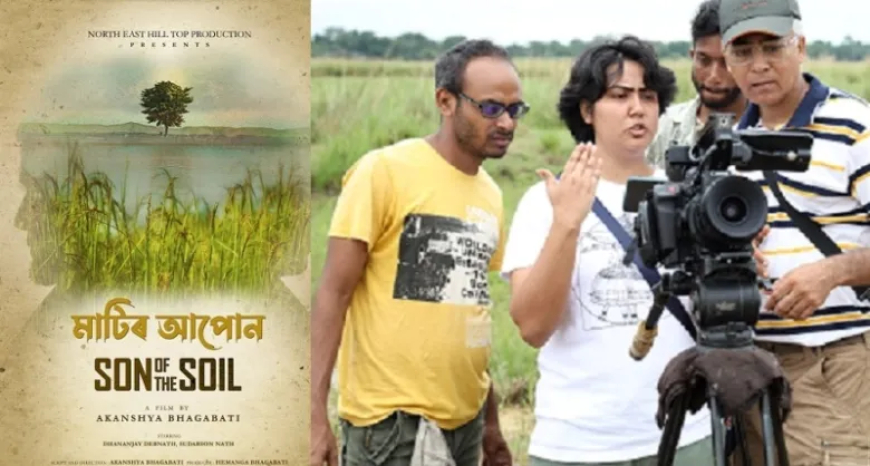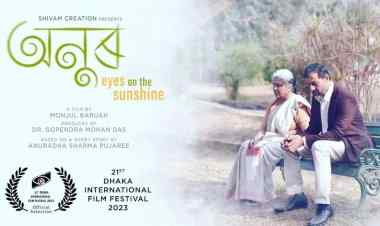Son of the soil(মাটিৰ আেপান) : A story on land, identity, and belonging
Apurbajyoti Tanti provides a comprehensive review of the short film "Son of the soil(মাটিৰ আেপান)" by Akanshya Bhagabati.

“The land is the only thing in the world worth working for, worth fighting for, worth dying for, because it's the only thing that lasts…”
— Margaret Mitchell, Gone with the Wind
One of the first concepts introduced in a Sociology classroom is the idea of the sociological imagination. Simply put, it is the capacity to connect individual experiences with larger social and historical forces. It teaches us that what we often perceive as personal troubles are, in fact, deeply rooted in broader social issues. Akanshya Bhagabati’s short film Son of the Soil(মাটিৰ আেপান) feels like a powerful visual interpretation of this very concept. It doesn’t merely narrate a story, it compels us to reflect on the tangled relationship between identity, land, and belonging.
Set in contemporary Assam, the film presents a seemingly simple premise: a native Assamese man, Haren, returns to his ancestral village after years in the city, only to find that the land he considers his own is now occupied and claimed by Ali, a Muslim immigrant laborer who has cultivated it for over a decade. From this point on, the story could easily have turned into a legal or moral drama about right and wrong, ownership and intrusion. But Son of the Soil denies us the comfort of binaries. There is no villain here. No hero. There is only a fractured landscape of competing truths. “Truth is multifaceted,” Bhagabati reminds us, “and your perspective mostly depends on where you stand.” And the film’s poetic heart lies in its refusal to assign blame. Both Haren and Ali are victims of their own circumstances.
From its very first frame, the film draws you in with a visual language that is both raw and poetic. The cinematography is unadorned yet deeply evocative. There are moments where the camera lingers on the faces of characters and these close-ups do not just portray emotion; they absorb you into the emotional texture of the narrative, allowing you to feel the weight of the characters' realities. The theme of belonging is inherently complex. ‘Who gets to belong?’ ‘Land, and the politics of owning or claiming land’ are deeply emotional, historical, and personal. It is especially urgent in the current socio-political climate, where questions of land rights and indigeneity have once again become flashpoints across the state. To tackle such a charged subject with restraint, sensitivity, and depth is no small feat. Bhagabati does it with remarkable maturity, allowing the story to unfold with empathy rather than judgment.
The film ends with the lines :
“There are ten truths in your feet, O lord Which one did you see?
O lord, tell me
Whose pain did you see?”
By the time the end credits roll, you are left with more questions than answers. And that, perhaps, is the greatest strength of this film. It first makes you feel, then it makes you think. Very few films today manage to achieve that. Even fewer filmmakers are willing to ask uncomfortable questions with such sensibility. And yes it requires sensibility as well as maturity in listening to silences, seeing without judging.
Son of the Soil premiered internationally at the Altyn Minbar Kazan International Film Festival in Tatarstan, Russia, and was screened at the Indian Embassy in Moscow. Domestically, it received the prestigious John Abraham National Award at SiGNS Film Festival (Kerala), Best Film at NEFVTA (Guwahati), and multiple other honors across Kolkata, Shillong, and Siliguri.
The short film is available on YouTube for free.
*****
What's Your Reaction?

































































